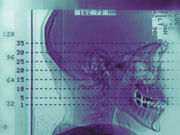Other factors tied to increased time to repair include concurrent injuries, decreased Glasgow Coma Score
MONDAY, Jan. 18, 2016 (HealthDay News) — For patients with maxillofacial trauma, factors such as injury severity score and concurrent injuries are associated with increased time to repair, according to a study published online Jan. 14 in JAMA Facial Plastic Surgery.
J. Paul Radabaugh, M.D., from the University of Kentucky College of Medicine in Lexington, and colleagues examined factors affecting timing of repair and barriers to management of maxillofacial surgery in a retrospective cohort study. Demographic information, presence and severity of concomitant injuries, and fracture-specific data were recorded for 780 adult patients undergoing operative repair of maxillofacial injuries. The authors also documented delays for medical, logistical, or other reasons. Factors associated with increased time to repair were determined.
The researchers found that the average time to repair was 6.5 days, and 17.7 percent of patients had a documented reason for delay (medical reasons, 44.9 percent; operating room logistical factors, 12.3 percent; or other reasons, 42.8 percent). Increased time to repair correlated with injury severity score, concurrent injuries, decreased Glasgow Coma Score, and inpatient status at time of surgery (all P < 0.001). Overall, 13.6 percent of cases had complications. There was no significant correlation noted between known operative delay and complications (P = 0.08).
“While delays in operative repair may be unavoidable in certain circumstances, streamlining and managing causes of known delay may help improve and expedite patient care,” the authors write.
Copyright © 2016 HealthDay. All rights reserved.








